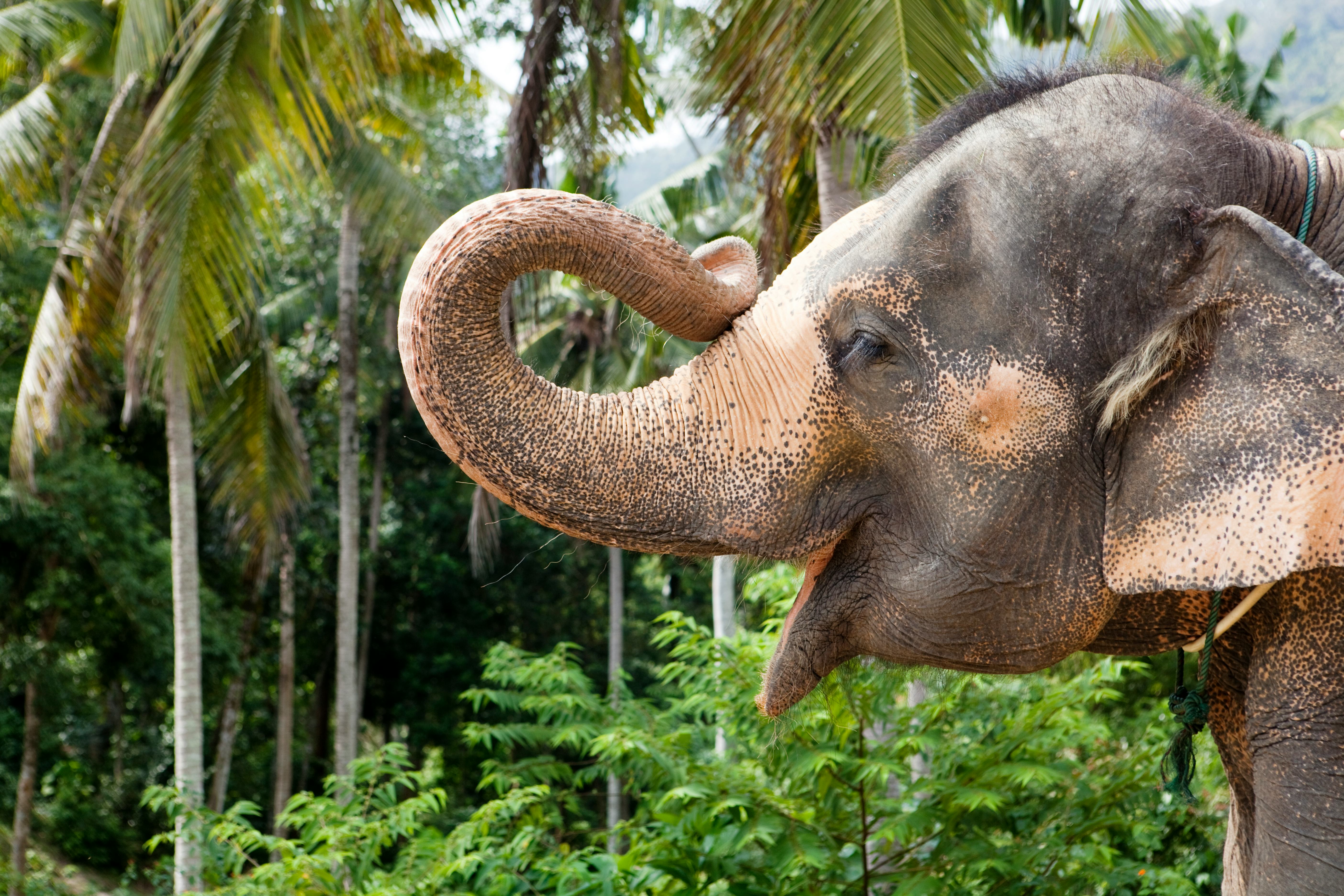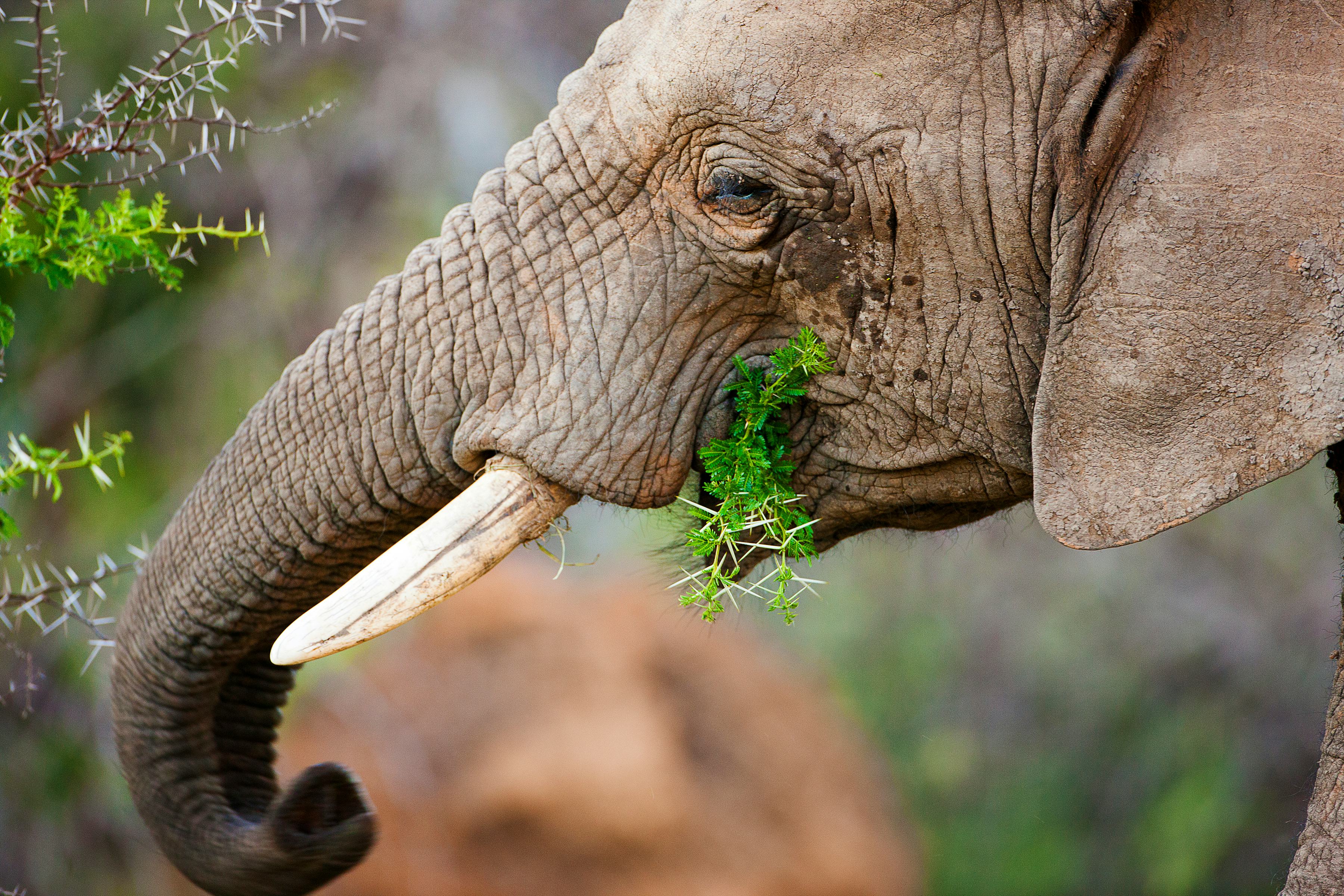
Millions of years ago, countless massive plant-eating creatures known as megaherbivores roamed the planet’s rainforests during the Pleistocene era.
Today, elephants are among the last surviving megaherbivores in rainforests. According to new research, these tropical forest elephants likely have “profound” effects on forest ecosystems — and may be an overlooked climate change solution. The findings were published Monday in the journal Proceedings of the National Academy of Sciences.
“These results help reinforce our understanding that if we want nature to help us mitigate climate change, we need complete ecosystems from insects to elephant to trees,” Fabio Berzaghi, lead author on the study and a researcher at World Maritime University in Sweden, tells Inverse.
How they made the finding — Researchers had a hypothesis: because of the way elephants feed and subsequently disperse seeds, these animals could be significantly contributing to carbon storage in forests.
To test their hypothesis, scientists analyzed forest inventory and elephant-feeding data from the Nouabalé-Ndoki National Park in the Republic of Congo and LuiKotale — near Salonga National Park — in the Democratic Republic of Congo.
Based on this data, the researchers were able to determine the mechanisms driving elephant feeding behavior and quantify their impacts on carbon storage in forests where they reside.

What they found — As it turns out, the scientists’ hunch was correct: elephants were directly impacting carbon storage through their feeding behavior.
The scientists drew two key conclusions from their data analysis.
First: Elephants prefer to chew on leaves from tree species with lower wood density. These leaves contain more protein and less fiber, making them more palatable to the megaherbivores.
“I was really surprised to see that out of several hundred species present in the forest, elephants make deliberate choices of which plants they eat and this is because [of] the leaves' palatability and nutritiousness,” Berzaghi says.
Second: elephants prefer to eat fruits from higher-density wood tree species due to their sugar content, which ultimately leads to elephants spreading the seeds of these trees.
“Forest elephants are prodigious seed dispersers, moving more seeds of more species than any other animal species,” write the researchers.
In other words: the elephants’ picky eating habits directly influence the kind of tree leaves and fruits they eat. As a result of these two simple actions, elephants directly contribute to the survival and spread of denser, woodier trees that store more carbon.
Why elephants matter — It might seem counterintuitive that elephants could help solve climate change by eating trees, but the researchers’ findings explain the link between this seemingly destructive behavior and its climate-positive outcomes.
In effect: by eating lower-density trees, elephants reduce overcrowding and prompt the growth of larger trees that will ultimately “sequester” or store more carbon.
“I think for most people it's not immediate to associate elephants or other animals to carbon sequestration, but it becomes more intuitive once the mechanism is explained,” Berzaghi says.
By helping store carbon in forests, elephants prevent its release into the atmosphere. Carbon dioxide is a primary driver of global warming.
“we need complete ecosystems from insects to elephant to trees”
The findings confirm that elephants are “ecosystem engineers” on par with beavers and other creatures who shape their environments through their daily habits. Researchers say they want forest elephants’ contribution to be recognized policy discussions around nature-based solutions to climate change in Africa.
But elephants face increasing dangers to their survival from human development to poaching. The message researchers are sending is clear: we must protect elephants if we want to conserve forest biodiversity and avert the climate crisis.
“Protection of forest elephants, including in logging concessions and other exploited forests, is a critically important wildlife-driven mitigation response to climate change,” conclude the researchers.
What’s next — Berzaghi is part of a team of researchers called “Animating the carbon cycle.”
The group’s goal: integrate the conservation of animals into nature-based climate change solutions. The findings suggest other large herbivores — like Asian elephants and even tapirs — may also contribute to the growth of high-carbon trees in their respective forest ecosystems.
“Animals are part of the solution, in the case of elephants, protecting forest elephants will involve protecting African forests and all the other species within them,” Berzaghi concludes.







